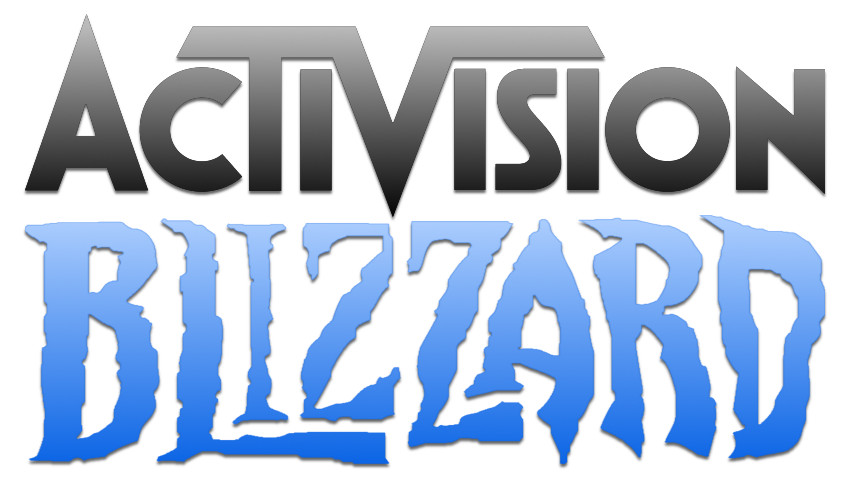Almost without fail, when you mention one of gaming’s giant publishers, “educated” gamers coil like snakes, and proceed to rattle off the many reasons that they won’t let these mega corps tread on them.
“Annualised games are killing the business.”
“Electronic Arts is the devil.”
“Call of Duty is trash.”
Such broad brushes usually never belong to the truly wise, free-thinking consumers, and don’t let the gaming community fool you into thinking it’s somehow the exception to this age old rule. Though a healthy mistrust of the intentions of big business and those in apparent power is about as American as apple pie, so is the ability to be open-minded and grateful of the things people have to offer, despite their flaws. The current state of the games industry can really be distilled into an easily palatable explanation so long as we keep the right perspective.
The middle tier developer is a shadow of itself. From THQ’s highly publicized demise, to Atlus’s re-acquisition, there isn’t a lot of room for moderate budget games anymore. That’s not EA or Activision Blizzard’s fault, though. You can blame capitalism, and these companies’ ability to provide the games that you want to play more efficiently and more frequently than their competitors.

Now, I don’t want to single you, the reader, out. I don’t know what you play. But I do know that Call of Duty: Black Ops 2 sold 23.48 million copies as of this month on both PS3 and Xbox 360. If there are around a combined total of 157.63 million PS3’s and 360’s out in the wild globally, that means that about 15% of people who play games on their HD consoles bought it. That means, if that isn’t you, that’s most likely someone you know.
Why would that many people buy this game? It’s not because they’re bros. People used to call Madden a bro franchise, and it never sold Call of Duty numbers. It could appeal to the lowest common denominator of gamer, but that’s just a more cynical way of saying that it has something for everyone. You can’t really say this game sucks either, as it was reviewed positively by an overwhelmingly large assortment of trusted critical game analysts (otherwise known as people who get paid to have opinions).
Activision is viciously assaulted as one of the worst of the AAA publishers, and candidly there are valid reasons. People don’t like the fact that they actively buy up smaller developers in order to make them develop the things that sell the best for them (i.e. Neversoft, Raven, Infinity Ward, etc.). People don’t like that Activision routinely finds ways to run franchises into the ground by tireless iteration.
These are valid concerns with the “dark side” of the business, but we need to understand two things as consumers: firstly, Activision doesn’t make us spend money on their products; if we don’t like them, cancel your WoW subscription and pass on next year’s CoD. Secondly, there business practices should not be reflected on the quality of their products. You may not buy the games out of protest of Activision’s business practices, but your opinion on the way they run their company shouldn’t effect your opinion of the game’s quality. It isn’t fair to the people who developed the games, who sat through crunch time and missed family events to make deadlines. It also isn’t fair to you, because your opinion does matter, and it shouldn’t be sullied by not keeping it in context.
Context is an incredibly important facet of looking at the AAA agenda in the present and the future. Blizzard haters got uppity some months ago because World of Warcraft subscribers dropped from 8.3 to 7.7 million subscribers in a fiscal quarter. Losing 7% of your subscriber base in three months could very well be an issue, but lets put it in context. If ANY other MMO lost 600,000 players in 3 months, they would be dead. 600,000 players is 100,000 more people than EVE Online’s entire playerbase. WoW is so big, they can afford to lose what their competitors can’t. Also, when more players than people that live in Hong Kong play a game, it isn’t because it’s bad.
Not only is the myth that AAA companies make bad games a curious perpetuation within our community, but so is the idea that these companies don’t take any risks. Ubisoft is one of the riskiest companies out there, as far as publishing creatively exotic games is concerned. Far Cry 3 was an incredibly unique take on the sandbox formula that wowed everyone. Then they published Blood Dragon, which was so absolutely different from the acceptable FPS formula, that I would bet plenty of people wouldn’t have been brave enough to send that to market. Their dedication to smaller, 2-D fares like the Rayman series and the upcoming A Child of Light shows that they understand that the competition isn’t just in yearly iterations, but in unique, one-off experiences.

And it’s not just Ubisoft doing this. Electronic Arts have been on the cusp of trying to publish unique experiences for decades. The EA Partnership program is the reason for some of the most celebrated gaming trends in the past ten years. We would have never spent hours with our friends playing plastic instruments in the most awesome karaoke bands ever without Rock Band, an EA Partners game.
Even without that specialized arm, EA has published some of the best games of our generation. Regardless of the debacle about the third game’s ending, the Mass Effect series was saved and propelled into legend thanks to confident funding of EA. Crysis, Battlefield, Dead Space, Plants vs. Zombies; these series’ and more are all great, and all thanks to EA. EA games are amongst the best reviewed in the industry, and that’s not by accident. But somehow, this is America’s worst company?
Perspective is the key, my friends. We have to change the way we see these companies, because these are the kind of companies that will carry the next generation. Franchises like Destiny and Titanfall are next gen’s Halo and Gears of War, and will be synonymous with game development for what will most likely be a long console cycle, if not the last.
Smaller developers will be looking to these AAA giants for guidance; as examples on how to make blockbuster sounds and visuals, for new ways to do our tried and true game mechanics, even for money to make their own visions come true. In order for that to happen, in order for us to really help guide these companies to be better than they are now, we need to realistically acknowledge the true good they’re doing. We need to keep our criticisms constructive and diligent, and work with the leaders of this industry that we are so deeply invested in, because none of us can make it without the other.






